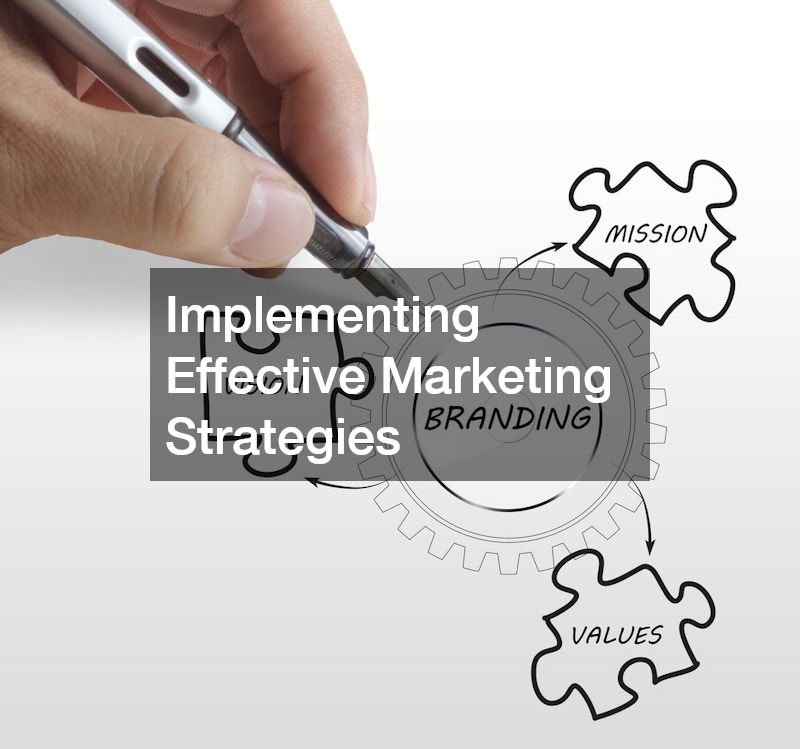Building a successful business in the HVAC industry requires more than just technical expertise; it takes a well-rounded approach to leadership, operations, and customer relations. HVAC companies face unique challenges, from fluctuating demand during seasonal transitions to the constant need for skilled professionals. The key to thriving in this competitive market lies in a comprehensive strategy that encompasses brand identity, customer service, and long-term business sustainability. Whether you’re just starting out or looking to scale an existing operation, building success is about creating a solid foundation, adapting to industry trends, and making strategic decisions that will lead to growth.
The HVAC industry is driven by the need for quality service and reliability, and building a successful HVAC business requires a deep understanding of the balance between customer satisfaction and operational efficiency. From the early stages of establishing a strong brand to ensuring that every service is executed with professionalism, each step is critical to sustained growth. In this blog, we will explore ten essential tips that will help you achieve building success in your HVAC business, covering areas like branding, customer service, marketing, and more.
Establishing a Strong Brand Identity

A strong brand identity sets the foundation for building success in any business, and the HVAC industry is no exception. A well-defined brand communicates your company’s values, expertise, and commitment to quality, which helps to build trust and recognition among customers. Your brand should reflect the essence of your company and resonate with your target audience. Whether it’s through your logo, website design, or customer interactions, every touchpoint should convey a consistent message about who you are and what you stand for.
For an HVAC company, this could mean differentiating your business through a focus on energy-efficient solutions, eco-friendly practices, or offering personalized customer care. A solid brand identity can help your business stand out in a crowded marketplace by positioning you as an authority in your field. By establishing your HVAC company as the go-to expert in areas such as air conditioning service or heating replacement, you can ensure that customers trust you not just for your technical capabilities, but for your commitment to providing high-quality, reliable solutions.
Focusing on Customer Service Excellence
Customer service excellence is one of the pillars of building success in any service-based business, and it is especially important in the HVAC industry. Customers want to feel valued, heard, and understood, and a positive experience can foster loyalty and repeat business. Providing exceptional customer service means going beyond just completing the job; it’s about ensuring that customers are satisfied with every step of the process, from initial contact to post-service follow-ups.
For an HVAC business, excelling in customer service involves creating transparent, efficient communication and being responsive to clients’ needs. For instance, when offering air conditioning service, it’s crucial to maintain clear communication about service timelines, pricing, and maintenance recommendations. By prioritizing the customer’s experience and ensuring that every technician is trained in not only technical skills but also interpersonal communication, you position your business for long-term success. Positive word-of-mouth and customer retention are invaluable when building success in the HVAC industry, making exceptional service a non-negotiable aspect of your operations.
Building a Network of Reliable Suppliers
A reliable network of suppliers is crucial for building success in any business, especially in industries like HVAC, where timely access to parts and materials can significantly impact service delivery. Establishing strong relationships with trustworthy suppliers ensures that your business can meet customer needs without delays or disruptions. By working with reputable suppliers, you can guarantee that you’re providing high-quality products and services that align with your brand’s values. A dependable supply chain will not only help maintain operational efficiency but also enhance customer satisfaction, as timely service becomes more predictable and consistent.
For an HVAC company, building this network may involve partnering with suppliers who provide not just essential components but also innovative solutions like energy-efficient units or the latest in HVAC technology. The ability to offer cutting-edge products, such as advanced cooling systems or smart thermostats, will make your business stand out. Whether you need heating oil during peak winter months or replacement parts for air conditioning repair, the right suppliers will ensure that your HVAC company can meet customer expectations without interruption. By continuously nurturing these relationships, you’ll set yourself up for both short-term success and long-term sustainability.
Implementing Effective Marketing Strategies

Effective marketing strategies are a key driver of building success in the HVAC industry. In a crowded marketplace, having a marketing plan that clearly defines your target audience, messaging, and channels of communication is essential. A strong marketing strategy doesn’t just promote your services—it helps build awareness, establish credibility, and connect with potential customers at the right time. In today’s digital age, this often includes maintaining an engaging online presence, using social media to connect with customers, and employing search engine optimization (SEO) techniques to ensure your business appears in search results when potential customers need it most.
For HVAC companies, marketing strategies should be tailored to emphasize both the immediate and long-term needs of customers. For example, while running ads for air conditioning service in the summer is important, a year-round approach might include content marketing focused on energy efficiency, seasonal maintenance tips, and special promotions for services like HVAC tune-ups or heating replacement. With targeted strategies, you can reach homeowners in need of cooling services or attract businesses that rely on HVAC systems for their daily operations. Through these well-crafted marketing efforts, you will not only attract new customers but also build a loyal customer base that trusts your brand to meet their HVAC needs.
Leveraging Technology for Business Efficiency
In today’s competitive HVAC market, leveraging technology is essential for building success and streamlining operations. From scheduling software to mobile apps for tracking service calls, technology can dramatically improve your business efficiency. By automating certain processes, you reduce the risk of human error, speed up workflows, and allow your team to focus more on customer service. With the right tools in place, your HVAC company can handle more jobs in less time, all while maintaining a high standard of service. Technology also allows for better data management, which is critical for tracking customer preferences, scheduling regular maintenance, and staying on top of inventory management.
For HVAC businesses, leveraging technology specifically can enhance both customer interactions and backend operations. For example, a smart scheduling system for air conditioning repair can enable your customers to book appointments online at their convenience, while your technicians receive instant updates on job details via a mobile platform. Additionally, using technology to monitor heating replacement installations or service performance can provide valuable insights into service efficiency and customer satisfaction. The ability to quickly analyze this data and adjust operations accordingly helps ensure that your HVAC business remains competitive, customer-focused, and ready for future growth.
Providing Ongoing Employee Training
Ongoing employee training is an essential aspect of building success in any business, but it holds particular importance in the HVAC industry, where new technologies and regulations constantly emerge. Training your employees not only improves their skills but also boosts morale and enhances job satisfaction, which leads to better overall performance. Continuous development ensures that your team stays up to date on the latest advancements in HVAC systems, industry standards, and customer service expectations. By investing in regular training programs, you show your employees that they are valued, which fosters loyalty and reduces turnover, contributing to a more stable and efficient workforce.
For HVAC companies, the benefits of ongoing employee training are highly specific. Technicians who are well-trained in new air conditioning repair methods, energy-efficient technologies, and safety procedures can provide superior service and minimize costly mistakes. This training can be formal, such as attending school, certification courses or workshops, or informal, such as in-house knowledge-sharing sessions. By equipping your team with the latest skills and knowledge, you not only enhance service delivery but also create a culture of professionalism and expertise that customers can trust. Whether it’s learning how to install the latest HVAC systems or improving customer communication skills, investing in your team’s growth is key to building success.
Ensuring Compliance with Industry Standards
Ensuring compliance with industry standards is a non-negotiable element in building success for your HVAC business. Adhering to regulations and standards not only keeps your business legal but also enhances your reputation for professionalism and reliability. Compliance demonstrates that your company operates ethically, respects customer safety, and is committed to quality work. It is also a vital part of maintaining your license to operate in the HVAC industry. By staying up to date on local, state, and national regulations, you can avoid costly fines, work disruptions, or legal trouble, all of which could hinder your business growth.
For HVAC companies, ensuring compliance involves staying informed about the specific regulations that govern air conditioning service, heating systems, and environmental practices. This can range from meeting safety standards for installations to adhering to laws about refrigerant use or the disposal of hazardous materials. Regularly reviewing and updating internal processes to comply with industry standards, such as those set by organizations like the Environmental Protection Agency (EPA) or the American Society of Heating, Refrigerating and Air-Conditioning Engineers (ASHRAE), ensures that your company consistently meets the required benchmarks. This commitment to compliance fosters trust with customers, who feel confident knowing that your HVAC company prioritizes both quality and safety.
Managing Finances for Long-Term Growth

Managing finances effectively is fundamental to building success in the HVAC industry, as it directly impacts the longevity and scalability of your business. Without careful budgeting, forecasting, and financial planning, even the most talented HVAC companies can struggle to maintain operations during lean times or periods of slower demand. Good financial management helps ensure that your business can cover its expenses, invest in growth opportunities, and weather unexpected challenges. It’s essential to track income and expenses carefully, maintain a healthy cash flow, and allocate resources to areas that will generate long-term value for the company. It’s important to keep your finances in your personal life up to date as well, such as paying your mortgage and light bill. This can help you keep all of your bills in order.
For HVAC companies, managing finances for long-term growth includes setting aside funds for regular equipment upgrades, training programs, and the procurement of materials needed for services like air conditioning repair and heating replacement. Creating a financial buffer for seasonal fluctuations can help smooth over periods of low demand, ensuring that the business remains stable year-round. Additionally, understanding the financial impact of marketing campaigns or hiring additional staff can help you make more informed decisions that support your growth objectives. By staying disciplined and strategic with your finances, you will position your HVAC company for sustained success and expansion.
Offering Flexible Service Options
Offering flexible service options is an important factor in building success for an HVAC business. Today’s customers have diverse needs, and providing adaptable services that cater to different schedules, budgets, and preferences can give your business a competitive edge. Flexibility means being able to accommodate emergency service requests, offer financing options, or provide service packages that give customers greater control over their expenses. It also shows that your company is customer-centric, willing to go the extra mile to ensure that clients are satisfied with the services provided. By offering a range of choices, you can attract a broader customer base and build long-term loyalty.
For an HVAC company, this could mean offering same-day air conditioning service for clients in urgent need or providing various payment options, including interest-free financing, for customers considering heating replacement. By being flexible with scheduling, payment, and service offerings, you enhance the customer experience and ensure that no one is turned away because of rigid service restrictions. Additionally, creating customizable maintenance packages or seasonal promotions allows clients to choose services that best meet their needs, making them more likely to return for future repairs or installations. Flexibility, in this sense, is a powerful tool for building success and growing your business.
Expanding Services to Meet Customer Demands

Expanding services to meet customer demands is crucial for building success in the HVAC industry. As the needs of consumers evolve, businesses must adapt by offering new or enhanced services that address these changes. Whether it’s adding new technology, diversifying your service offerings, or addressing seasonal needs, continuously expanding your services helps your HVAC business remain competitive and relevant. Meeting customer demands isn’t just about keeping up with trends—it’s about anticipating what your customers will need next and positioning your business as the go-to provider for all their HVAC-related requirements.
For an HVAC company, expanding services could involve offering additional cooling services, such as maintenance for smart thermostats or advanced air filtration systems. It may also include adding options like heating replacement services for more energy-efficient systems or branching out to provide emergency HV AC repairs. By staying attuned to customer preferences, such as the increasing demand for eco-friendly options, your business can thrive in a market that values innovation and variety. Expanding your service offerings in response to customer demands not only positions your business as versatile but also opens up new revenue streams, further contributing to long-term success.
Building success in the HVAC industry is a multifaceted endeavor that requires attention to every aspect of your business, from customer service to finances and beyond. By establishing a strong brand identity, focusing on exceptional customer service, and utilizing technology to streamline operations, your HVAC business will be well-positioned for long-term growth. Offering flexibility in service options, building reliable supplier networks, and ensuring ongoing employee training all contribute to creating a competitive and sustainable company. Expanding services and managing finances effectively further solidifies your position in the market, giving you the tools to thrive even in challenging times.
Each of these strategies is essential for HVAC companies seeking to build success and adapt to an ever-changing market. By implementing a holistic approach, staying focused on your goals, and continuously improving in all aspects of your business, you can achieve lasting success and provide value to your customers for years to come. Whether you are just starting out or looking to grow your established business, remember that building success requires a combination of innovation, commitment, and strategic planning.
